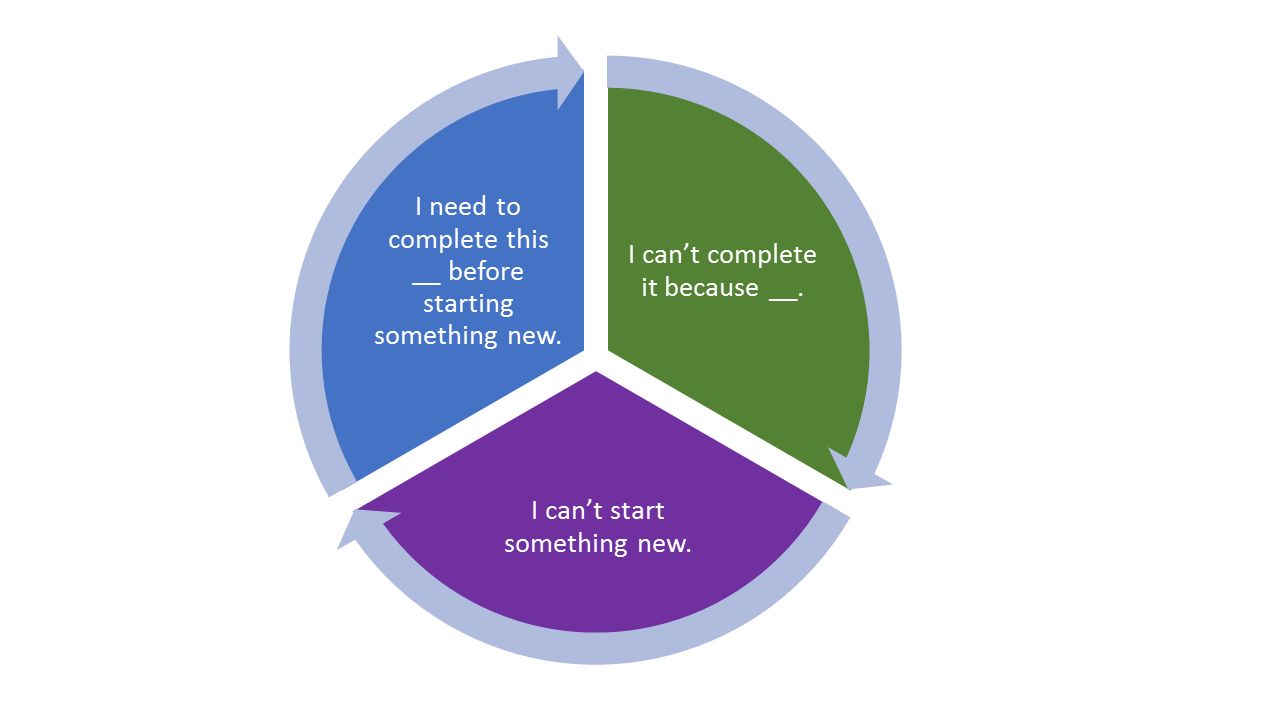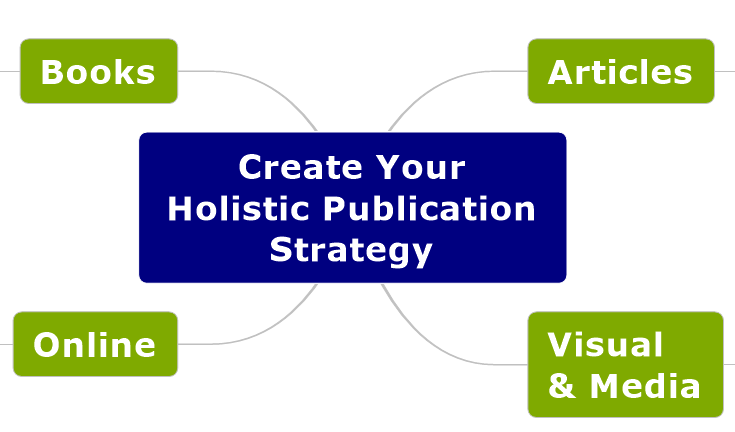How to Revive Academic Writing Left for Dead?
by Janet Salmons, PhD Research Community Manager for Sage Methodspace
Dr. Salmons is the author of numerous Sage books, and Publishing from your Doctoral Research: Create and Use a Publication Strategy.
Does your writing need CPR? Breath new life into projects left for dead!
No matter how organized or productive we are, sometimes we run out of ideas, enthusiasm, time, or all of the above. The piece of writing we thought would change the world is now gathering dust. We can find endless reasons to set aside a piece of writing. Perhaps we are distracted by another priority or opportunity, We hit a writers' block of some kind, and move on to something else. The forces of inertia might hold you back. Or, if we are to be candid, we might just be sick of it!
But as time goes on, we might see some benefit from revisiting a piece of work we left for dead. Options include dusting off the unfinished article, book or chapter and refreshing it with updated literature and/or data. We might pull back from the scholarly content (especially if it is dated) and create some practical how-to resources. We could re-purpose it, using the half-done piece as the basis for a more informal item for our professional society's blog or newsletter. We could ask for help, perhaps by joining a supportive writing group, requesting feedback from trusted colleagues, or by looking for co-authors who could bring new insights to the project. Or we can declare it dead, and start fresh with a new direction for our writing. How do we decide which is the best path forward?
What to do? Key Questions and Practical Steps
I recently went through this process of adding new kindling to a long-dead fire. After several tries I managed to find the spark and reignite my motivation for completing a book. I was able to move from dread and anxiety to enthusiasm and success. I will share key questions and tips drawn from this and other experiences.
Look candidly at your project. Is it a stepping stone, and completion will be allow you to move ahead? Or is it an obstacle that prevents you from moving forward?
What writing project fizzled?
Have you tried to revive it, or did you wrap it in black ribbons and read it last rites? Is it completely dead, or can you see any green shoots amidst crunchy dead leaves? Your obstacles and opportunities will be different, depending on how long ago you conducted research, and read relevant literature. Are the "I can't finish it because..." obstacles ones you can realistically surmount? If so, make a plan, set up systems of accountability that will work for you, and re-commit to the project. Are your obstacles related to time, focus, content, or tools? By identifying the issues, can you find ways to address them?
In my case, new opportunities drew me away from a book I was writing about online collaboration and collaborative e-learning. I negotiated an exit from the book contract, and started writing about the methods I’d used to do the research: synchronous online interviews, with graphic elicitation, interactions on a shared white board, verbal and text exchanges. I’ve now written four SAGE books about these and other online methods. What about that collaboration stuff?The book project was on the far-back burner for almost a decade, until I found just the right publisher and decided to move it forward.
What type of writing project are you trying to revive?
Thesis/dissertation? Article? Chapter or book? Report or other professional writing? And what is the purpose of this piece of writing: to inform or instruct, to add new thinking to the scholarly literature, or to provide practical how-to steps? Importantly, has your purpose changed? In my case, as mentioned, the project involved was a book. The concept for this book was scholarly, with focus on the theoretical implications of the models I was introducing. The primary purpose to instruct, with the goal of adoption as a text and graduate education courses. A shift in purpose allowed me to revive this draft.While the new book includes discussion of the theoretical context, the purpose is very practical. This book is designed as a practical how-to resource for educators in academia, or for instructors in professional, informal or community based settings. While I still needed to update my literature, the burden of doing so was much less than I would’ve been with a scholarly book.
Look at your own writing project with an open mind.
If you were planning to write an article for the peer-reviewed journal, might you more readily develop a series of substantive posts for a blog or professional association newsletter respected in your field? Perhaps this exercise will ignite your curiosity and you’ll write that serious article after all.If you were planning to write a book and got bogged down, perhaps you could instead create an edited book. Put out a call for chapters in include as much of your own writing is you want to update, complemented by the work of others in your field.In other words, the type of writing you started way back when might still be right for you now. Or, this might be a great time to find new ways of getting your work out. Those new ways might not entail writing-- you might choose to create media, a graphic novel, or some other form.
Is out-of-date literature an issue?
Every month more journal articles and books are published. Searching and analyzing the literature to update your piece of writing can be intimidating. Depending on the type of writing you have chosen, the significant effort required to re-review the literature might be unavoidable or optional. Requirements aside, reading current literature can help revive your interest in the topic, and inspire you to contribute your own research findings and insights. Current literature could offer the basis for a then-and-now comparison between era of your research and now. I chose to write the style of book that did not need a full literature review. However, I had continued to collect and read articles that related to my interest in collaboration, so I wasn’t far behind. Updating my collection of background materials and looking at new ideas helped to reboot my enthusiasm for the project.
Is out-of-date data an issue?
What are your options for complementing your study with new data and interpretations? If you want to avoid conducting another study, could you update your work with an analysis of extant data? More and more archives, databases, and data sets are being made available to academics and the general public. These treasure troves of data might allow you to but only update, but also to enrich, your original study. What qualitative or quantitative data are available in your field? How could you align new findings with your prior research? How can you integrate new insights with prior discussion of results? I did a small follow-up study, and I developed and taught a course based on the models. But I did not formally update the data from the original study. Instead, I used gleanings from the literature as well as input received from educators in the field. I reflected on questions and comments I had received when I presented the models central to the book.
Are out-of-date writing tools an issue?
Do you need to update or upgrade dated software? Can you use this writing project as an excuse to buy new tools that would help you make progress?
I’ve found that new tools can be motivational. For example, I started using voice-to-text. I’ve found that I can think creatively when I’m not worried about the keyboard. I’ve also found that reduces eyestrain during long writing stretches because I’m not staring at the screen. (There are some amusing bloopers in voice-to-text: when I have a cold it kept adding “huh, huh, huh” or the phone will ring and I’ll find snatches of conversation captured in my document. Keep in mind that you need to proof read! )
Do you have the skills you need to move forward?
If obstacles include deficiencies in skills or abilities necessary to writing success, take a candid look at feedback you have received, and identify what you need to learn. If these issues will cause obstacles to completion of future projects, think about ways to mitigate them. Look for tutorials or classes that can help you address the gaps. In the process, you might find encouragement and camaraderie with other aspiring writers. When you realize that the obstacles to completion of this project are simply too great, let it go.
Avoid sacrificing the future to the past.
It was a great concept... was being the operative term. If obstacles to completion are too great, and the old project is keeping you from moving forward, it is counter-productive to persist. Let it go. If you made commitments, or have agreements, take the steps needed to withdraw. Come to terms with this ending, and use it as a springboard for a new beginning. It is always hard to give up and say goodbye. Create a positive impetus by using this farewell as a teachable moment. Reflect on lessons learned. What will you do differently with the new project?






























Look candidly at your unfinished project. Is it a stepping stone, and completion will be allow you to move ahead? Or is it an obstacle that prevents you from moving forward? Find ideas to help you determine whether to revive that piece of writing or let it go.